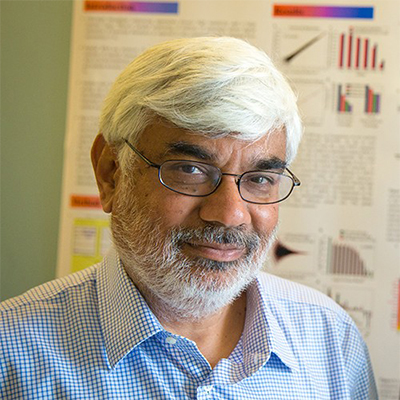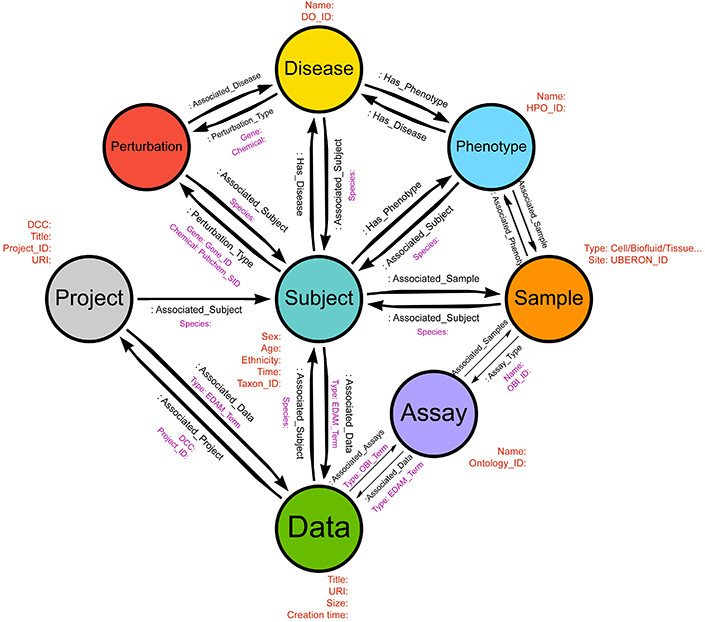UC San Diego and Mount Sinai Receive $8.5M NIH Award for Data Integration Hub
The award to UC San Diego and Icahn School of Medicine at Mount Sinai will establish a Data Integration Hub for NIH Common Fund Supported Programs
Story by:
Published Date
Article Content
Researchers at the University of California San Diego and the Icahn School of Medicine at Mount Sinai have been awarded an $8.5 million grant to create a data integration hub aimed at accelerating novel therapeutics and cures for diseases within initiatives supported by the National Institutes of Health (NIH) Common Fund.
NIH Common Fund programs are large-scale projects designed to collect cutting-edge biomedical research data from human cells, tissues, and patients to rapidly advance biomedical research.
The Common Fund Data Ecosystem (CFDE) program was created by the NIH to enhance the findability, accessibility, interoperability, and reusability of data generated by NIH Common Fund programs, thereby ensuring adherence to the FAIR guiding principles for scientific data.
This ensures that researchers can efficiently explore NIH Common Fund-produced datasets to facilitate new biomedical discoveries and will enable researchers to search across Common Fund-produced datasets to ask complex scientific and clinical questions to catalyze new biomedical discoveries.
Building on the successes of the pilot phase of the CFDE program, and with a five-year investment of $17 million, the NIH has established two new centers: the CFDE Data Resource Center and the CFDE Knowledge Center. Investigators from Icahn Mount Sinai and UC San Diego were selected to lead the CFDE Data Resource Center, and investigators from the Broad Institute of MIT and Harvard were awarded the CFDE Knowledge Center.

“This is a unique opportunity to enable a biomedical researcher to make innovative discoveries through full utilization of the data that has emerged from the large investments the National Institutes of Health have made under the aegis of the NIH Common Fund,” said Shankar Subramaniam, a UC San Diego professor and a Principal Investigator of the CFDE Data Resource Center. Subramaniam, the Joan and Irwin Endowed Chair of Bioengineering and Systems Biology, is a Distinguished Professor of Bioengineering, Bioinformatics & Systems Biology, Computer Science & Engineering, Cellular & Molecular Medicine, and Nanoengineering at UC San Diego. Subramaniam has a longstanding record of establishing NIH-funded national data infrastructures. He is currently the PI of the NIH Common Fund Metabolomics Project and an NIH-appointed advisor for national data efforts including TOPMED and NPH.
“By integrating data from various omics technologies and by making these datasets readily available for analysis and visualization with artificial intelligence and machine learning, many discoveries can emerge,” says Professor Avi Ma’ayan, a Principal Investigator of the CFDE Data Resource Center, and Director of the Mount Sinai Center for Bioinformatics and Professor of Pharmacological Sciences, and Artificial Intelligence and Human Health. “We are delighted that the NIH has recognized our past contributions to the CFDE, the library of integrated cellular-based signatures (LINCS), and the illuminating the druggable genome (IDG) Common Fund programs and trusts us to lead this new effort.”
Currently, most Common Fund datasets are dispersed across distinct data portals, resulting in underutilization due to the absence of standardized community practices and shared data processing protocols. By enabling seamless discovery of datasets across the Common Fund data, uniformly processing the data, and better combining data from different programs, the investigators anticipate the emergence of synergistic discoveries.
By working with the Common Fund data coordination centers, the Data Resource Center and Knowledge Center are expected to produce highly valuable computational resources for the entire field of biomedical research.
"As one example, by integrating metabolomics data from the Common Fund programs, the National Metabolomics Data Repository, the MoTrPAC, Nutrition for Precision Health, and Human Health Exposure Analysis Research, we have a unique opportunity to map the ‘metabotype’ of humans under diet, exercise, and environmental perturbations,” says Subramaniam.
Professors Subramaniam and Ma’ayan will lead the Data Resource Center. The Knowledge Center award will be led by Jason Flannick, Assistant Professor of Pediatrics at Harvard Medical School and the Division of Genetics and Genomics at Boston Children’s Hospital, and an Associate Member of the Broad Institute along with Dr. Noel Burtt, Director of the Diabetes Research & Knowledge Portals Program at the Broad Institute and Kyle Gaulton, associate professor of pediatrics at UC San Diego School of Medicine.

Professor Subramaniam serves as the Principal Investigator of the Common Fund Metabolomics program. Professor Ma’ayan has served as a Principal Investigator of the Common Fund data coordination centers: LINCS and IDG programs. Building on this experience, the research teams work will involve:
- Establishing a Data Resource Portal to enable user-friendly queries of Common Fund data sets
- Developing the CFDE Portal for the ecosystem, housing information and links to related resources, trainings, and events
- Assisting Common Fund programs in standardizing how metadata, data, and digital resources are handled in the ecosystem, and liaising with other relevant NIH efforts
UC San Diego is among the top five (4th) highest NIH-funded institutions in California, and it the 12th highest in the nation.
The work is being supported by the NIH Office of the Director (award number OT2OD036435).
This release is based on the release from the Icahn School of Medicine at Mount Sinai.
####
About bioinformatics, systems biology and biomedical data sciences at UC San Diego
UC San Diego is a leader in bioinformatics, systems biology and biomedical data sciences. The UC San Diego Bioinformatics and Systems Biology Program, founded by Professor Shankar Subramaniam, is the top-ranked program in the country and has trained several hundred research leaders in industry and academia. The Bioinformatics Graduate Program is supported by a NIH Training Grant for over 20 years. The San Diego Supercomputer Center at UC San Diego serves as the nerve center for large national repositories including several NIH funded data resources.
About Bioengineering at UC San Diego
The Department of Bioengineering at UC San Diego ranks 5th in the nation for biomedical/bioengineering (US News and World Report Ranking of Best Engineering Schools, published April 2023). Bioengineering has ranked among the top five programs in the nation every year for over twenty years. At UC San Diego, cooperation between engineering, medicine and health sciences is the foundation of this success by providing an ideal research and training environment that leads to effective collaborations between engineers and medical scientists. Research interests are broadly categorized to embrace three pillars of bioengineering: multiscale bioengineering, tissue engineering and regenerative medicine, and systems biology and medicine. With established and promising up-and-coming core faculty, the department has four disease focus areas: cancer, cardiovascular diseases, metabolic disorders, and neurodegenerative diseases. In 2022, the department was named the Shu Chien-Gene Lay Department of Bioengineering in recognition of Gene Lay’s generosity.
Learn more about research and education at UC San Diego in: Artificial Intelligence
Share This:
Stay in the Know
Keep up with all the latest from UC San Diego. Subscribe to the newsletter today.



